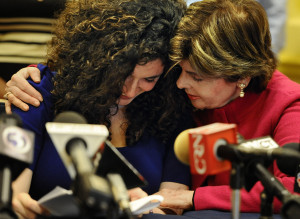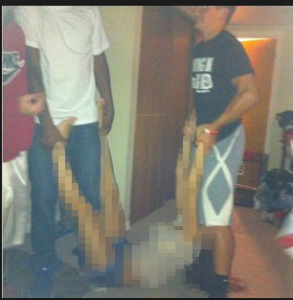I suspect what follows will mislead some of you to think that my views on this confluence of issues make those of the chauvinistic characters on Mad Men seem progressive. But before you get your panties all in a twist, I urge you to take a minute to search this weblog – using the words “woman power” – to be thoroughly disabused of any such thought.
That said, I am beyond dismayed that so many avowed feminists are bullying one of their own for presuming to entreat college girls (to be liberated enough) to accept responsibility for the consequences of their own binge drinking.
Recently cyberspace erupted into the feminist equivalent of a civil war over the connection between binge drinking and sexual assault.
After Slate columnist Emily Yoffe wrote a column using statistics that showed a link between drinking on college campuses and incidents of sexual assault, and arguing that we have to warn young women on the very real dangers of excessive drinking, she was pilloried by some female writers.
(Washington Post, October 31, 2013)
I could not agree with her more. Frankly, this coven of female writers pillorying Yoffe smacks of a parlor of Victorian old bats casting aspersions on any young woman who dared to let a progressive thought slip from her tongue, let alone behave in a way that even hinted of women’s liberation.
No doubt there’s a world of difference between date rape (where “no” means no!) and drunk sex (where a self-induced altered state of consciousness renders “no” far too ambiguous for legal declarations and sanctions). Alas, the only thing that determines whether a girl is an unqualified victim in the former, but a contributorily negligent participant in the latter, is the extent to which society (or the law) holds her responsible for her own (drunken) behavior.
 Which is why it conjures up the ironic spectacle of Salem witch trials for feminist lawyers like Gloria Allred to be trying to pin that dreaded letter “R” on college boys who engage in what Yoffe describes as “alcohol-soaked hookup sex.” Not to mention the uncertainties and potential unfairness inherent in trying to determine (based solely on the fog of he-said, she-said recollections) where such commonplace hookup sex transgresses into rape.
Which is why it conjures up the ironic spectacle of Salem witch trials for feminist lawyers like Gloria Allred to be trying to pin that dreaded letter “R” on college boys who engage in what Yoffe describes as “alcohol-soaked hookup sex.” Not to mention the uncertainties and potential unfairness inherent in trying to determine (based solely on the fog of he-said, she-said recollections) where such commonplace hookup sex transgresses into rape.
Frankly, feminists would serve young girls far better by imploring them to drink responsibly than by encouraging them to cry rape the morning after.
This, however, should not preclude us from imploring young boys in similar fashion to appreciate that having sex with semi-conscious girls is like playing Russian roulette with their education, if not their freedom. In such cases, Nancy Reagan’s schoolmarmish mantra makes perfect sense: Just say no!
 Mind you, no reasonably prudent boy could possibly think that it’s okay to join in gang banging a girl too drunk to protest, let alone enjoy whatever perverse pleasure a perfectly sober girl might derive from such an experience. This is why the infamous Steubenville High School case was so easy to distinguish, condemn, and prosecute.
Mind you, no reasonably prudent boy could possibly think that it’s okay to join in gang banging a girl too drunk to protest, let alone enjoy whatever perverse pleasure a perfectly sober girl might derive from such an experience. This is why the infamous Steubenville High School case was so easy to distinguish, condemn, and prosecute.
Incidentally, the Violence Against Women’s Act of 1994 made it easier to prosecute crimes against women; and its reauthorization earlier this year expanded protections for victims of domestic abuse and sexual assault, including provisions for civil action where no criminal prosecution is warranted.
But this act should not be used as a morning-after pill to help women cope with the guilt and shame associated with alcohol-soaked hookup sex.